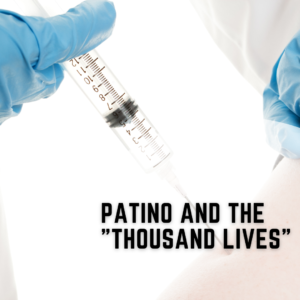 In my profession as a healthcare ethics keynote speaker, healthcare ethics consultant and author, I am often at a loss to explain the depths of my disdain for those who profit off of illegal opioid distribution. I am especially angered when that fraud is committed by a physician. How many lives can a monster like this destroy? How many deaths will be caused by greed and callousness?
In my profession as a healthcare ethics keynote speaker, healthcare ethics consultant and author, I am often at a loss to explain the depths of my disdain for those who profit off of illegal opioid distribution. I am especially angered when that fraud is committed by a physician. How many lives can a monster like this destroy? How many deaths will be caused by greed and callousness?
Francisco Patino, M.D., a physician who practiced in Michigan, along with several co-conspirators has just been sentenced to 16 years in jail. Their unethical scheme led to $250 million in fake Medicare and other insurer billings, as the result of a distribution of 6.6 million opioid pills and opioid injections. I will let those numbers sink-in.
According to the Assistant Attorney General (italics are mine):
“This defendant exploited vulnerable patients struggling with addiction by overprescribing highly dangerous opioid pills and exposing them to unnecessary and sometimes painful injections.”
The case
The case against this physician goes back to September 2021. According to the DOJ, he was convicted of:
“Health care fraud and wire fraud, conspiracy to defraud the United States and pay and receive health care kickbacks, conspiracy to commit money laundering, and money laundering.”
Patino didn’t operate the machinery of this scam on his own; he had the participation of 21 other fraudsters who cashed in on this enormous piggybank of death. What makes Patino so unethical is how, from multiple clinics, he doled out painful injections to get the addicted even more hooked and then issued prescriptions for opioids to maintain their addictions.
Naturally, spinal and other opioid injections bill at a higher rate. The patients had no medical need for these procedures. When the case was being adjudicated, it was determined that not only did Patino run a prescription mill, issuing more injections than any other physicians in the area, but the dosages were higher.
The Special Agent in Charge of the case stated:
“In particular, the administration of unnecessary injections, in exchange for unnecessary opioid prescriptions, places patients at serious risk of harm and exploits some of the most vulnerable people.”
The physician had an interesting money laundering scam as well. He poured millions into book projects that positioned him as a diet and nutrition expert, and he consulted with numerous UFC fighters.
The web of lies and kickbacks extended to county clinic managers, fraudsters, home healthcare agency owners and even licensed physical therapists. They all faced jail sentences and all of their lives are ruined; certainly not to the extent of those who are addicted. However, as a healthcare ethics keynote speaker, healthcare ethics consultant and ethics book author, my concern must focus on how a case this immense could have happened and what can be done to fix it?
The questions remain
When all the dust settles, we need to ask, how was there so little oversight that a scam of this magnitude was allowed to go on for years? How could a physician have so little regard for human life? How could clinic owners and licensed therapists; homecare agencies and county agencies have allowed themselves to sell-out to their own greed.
The inescapable conclusion always leads back to ethical training and a systemic lack of ethical reinforcement.
Obviously, greed (“There’s lot of money to be made off the government”) and rationalization (“These were drug addicts, anyway”) were contributing factors no matter how I might paraphrase it, but the system itself is far too lenient on ethical accountability.
I am sure that none of the defendants started life as fraudsters, so what happened? Until Medicare and the government itself, starts to examine where ethical indifference can lead, I am fearful this pattern will continue. More lives will be lost; thousands of them.
LEAVE YOUR COMMENTS!


